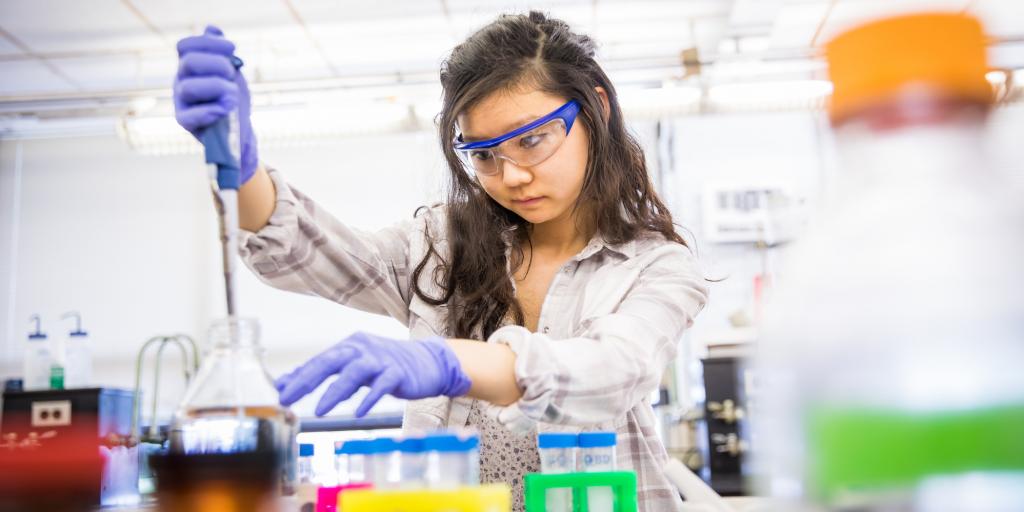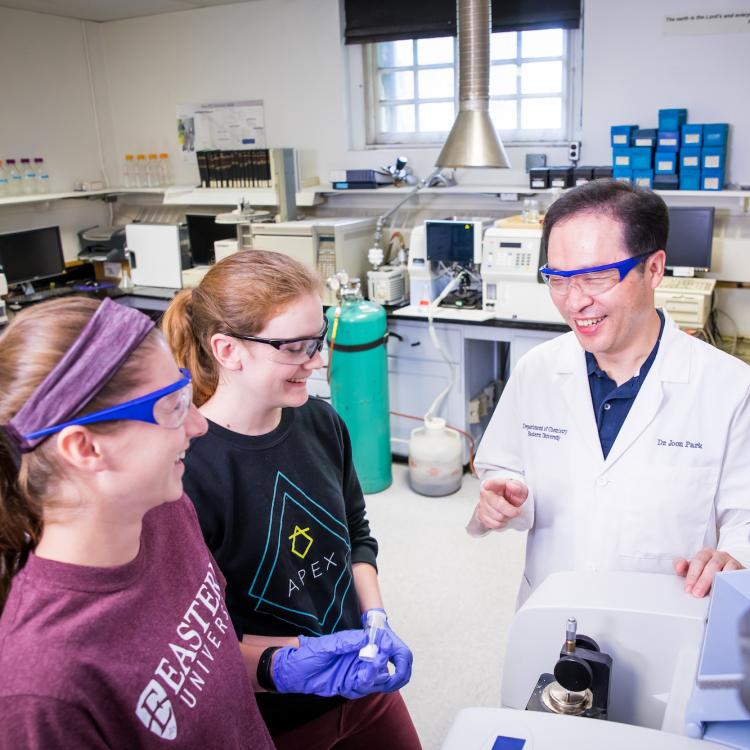

Why Major in Chemistry?
The BS in Chemistry at Eastern University provides students with foundational knowledge of both classic and innovative theory and also prepares them with necessary chemistry laboratory skills. Students take general and organic chemistry courses in small classroom and laboratory settings, as well as upper-level courses in, e.g., instrumental analysis, quantum chemistry, industrial chemistry, and advanced organic chemistry.
Chemistry students have the opportunity to work alongside faculty in on- and off- campus research, or to intern in local Philadelphia, across the country, and around the world. Upon graduation, students are prepared to enter graduate or medical school, or to pursue careers in chemistry research, forensics, chemical industry, medical technology, information technology, and education.
Why Choose Eastern?
- NEW! Accelerated 4+1 Forensic Chemistry Track: Earn a BS in Chemistry degree from Eastern, plus a Professional Science Master's (PSM) in Forensic Chemistry at Temple University.
- Integration of faith, science and vocation: We offer rigorous study of chemical processes through the lens of a Christian worldview. Deeply committed faculty provide mentoring relationships to support and challenge students.
- Independent research with faculty: All chemistry majors work with published faculty in original research during academic semesters and in the Summer Research Program. Projects include cloning and analysis of virulence-associated proteins from a bacterial pathogen; organic synthesis of bio-inspired molecules, nanoscale devices and new liquid crystal structures; theoretical modeling of strained molecules; and developing novel electrochemical sensors for polyionic compounds. Student research posters have been given top awards by the American Chemical Society.
- Instrumentation: Students gain extensive hands-on experience with advanced instruments: 300 MHz FT-NMR, FT-IR, GC-MS, AAS, Diode-array UV-Vis, HPLC, FPLC, SEM, DSC, PCR, 96-well microplate reader, molecular modeling.
- Innovative teaching: Students learn to think critically and communicate clearly in classroom and laboratory settings.



